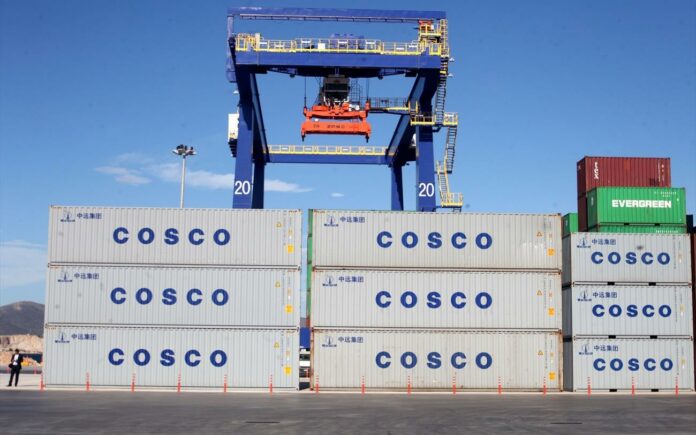By A. Tsiblakis
Chinese shipping giant Cosco wants to transform the port of Piraeus into a “maritime city”, according to sources close to the Shanghai-based multinational.
With a ratified, by Greece’s Parliament, concession deal for the Piraeus Port Authority (OLP) in its pocket, and days after a prime ministerial Greek delegation visited China, Cosco sold its 50-percent stake of the port of Naples (Conateco) to Mediterranean Shipping Co. The latter holds the other half of the Italian port.
Naples was Cosco’s first foothold in Europe.
Company officials have repeatedly cited the goal of turning Piraeus into the biggest port in the Mediterranean and one of the biggest in Europe.
Cosco, which is owned by the Chinese state but employs a corporate management and business model, will official assume control of OLP in August.
The figures recently cited by the Chinese side are 600 million euros in investments for OLP, a figure higher than the one foreseen in the concession agreement, as well as 400 million euros for container terminals at Piraeus that it already manages.
“OLP will be the only port hub for the Chinese in the Mediterranean,” shipping sources in the port city stressed.
According to reports by “N”, Cosco is also ready to participate in another international tender called by Greece’s privatization fund (TAIPED or HRADF) for a logistics hub in the nearby Thriasio industrial district, west of Piraeus and the greater Athens area.
The Chinese side has repeatedly shown an interest in expanding further onto the land-based side of operations in Greece.
Sources said Cosco will vie for the project, but under two conditions: that the tender includes the entire tract of land for the proposed hub, and, of course, that a current tender be declared null and void.
According to reports, the plan is to build a logistics hub similar to the one operated by Cosco in Dubai, with various stages of manufacturing and assembly activity to follow at the specific location for Chinese goods imported to Europe.














